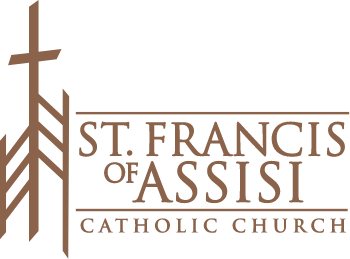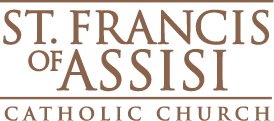When I first entered seminary, I was surprised by something small but significant: we prayed at the beginning of class. Having always attended public school, I wasn’t used to class and prayer going together. Each time we made the sign of the Cross, part of me almost wondered, “Wait, are we even allowed to do this?”
As seminary life continued, we began leading prayer ourselves. Sometimes we were in a rush, and our prayers felt like stones quickly hurled toward heaven’s door, hoping blessings would fall back down on us. Other times we were more genuine—we gave thanks to God for the day, asked for His wisdom to help us learn, and then moved on with our work.
One day, though, something was different.
My friend Larry led prayer. We made the sign of the Cross as usual, and most of us probably readied our spiritual arms to fling a few rocks toward heaven. But Larry paused first—really paused—to draw near to the Lord. Then he began to pray:
“I love you, O my God, and my only desire is to love you until the last breath of my life. I love you, O my infinitely lovable God, and I would rather die loving you, than live without loving you. I love you, Lord, and the only grace I ask is to love you eternally . . . My God, if my tongue cannot say in every moment that I love you, I want my heart to repeat it to you as often as I draw breath.”
It was the prayer of St. John Vianney, the patron saint of priests.
Where many of us had been throwing rocks at heaven’s door, trying to say, “Hey, we need something from you,” Larry did something else. Like Abraham in Scripture, he first drew near to the Lord before he prayed. That simple detail matters. Abraham’s prayer began not with requests but with relationship. He prayed as a son whose greatest joy was the Father to whom he was speaking.
Perhaps this is why prayer often feels boring for so many. Jesus taught His followers to ask, to seek, and to knock, but how often does prayer become a way of writing down our wishes on stones, lobbing them over heaven’s wall, and hoping God tosses back what we asked for? We prefer what God can give us to God Himself. We prefer a God who gives us what we want to a God who is what we want.
St. Francis of Assisi approached prayer differently. Many nights he prayed, “Who are you, my Lord God, and who am I?” He wasn’t as focused on the circumstances of his life as he was on coming to know the Father who loved him—so that, regardless of the circumstances, he could become the man of love God created him to be.
Prayer requires slowing down, drawing near, and knocking. Not as salespeople pitching our ideas to heaven—“Lord, have you heard about this new idea I have for the world? I think you should really try it”—but as sons and daughters seeking the Father simply to be with Him.
And if that desire feels small or weak, Jesus gives assurance:
“If you who are wicked know how to give good gifts to your children, how much more will the Father in heaven give the Holy Spirit to those who ask Him?”
The Father longs to pour His divine love into our hearts—the love that exists between the Father and the Son. It is by this love that we call out, “Father… You whom I know love me.”
Ask the Father for this gift of divine love—the love that abides in the Heart of Jesus for His Father.
Ask, and you shall receive.
Seek, and you shall find.
Knock, and the Father will open the door to you.
Father Grant Huslig, Parochial Vicar

